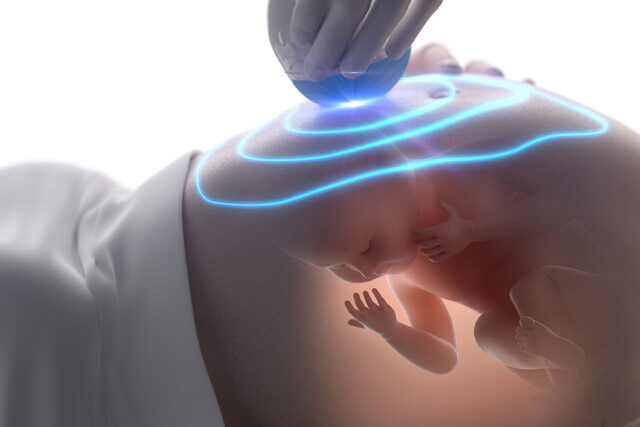In recent years the tendency of women to wait till their 30s before trying for a child has become more visible. According to the CDC, there is a steady decline of an average of 4% in the birthrate among women under the age of 30 years. Instead, women between the ages of 30 to 39 are having more babies than before. For example, about 20% of the women in the United States decide on having their first child after age 35.
It can be a great decision as the mother-to-be is more likely to have a stable career, reliable financial status, independence, and overall experience that will help them overcome pregnancy-related challenges. Self-realization is also a major factor in building self-esteem and avoiding postnatal depression. But the person’s health inevitably changes over the years, and it correlates with changes in their fertility, conception, pregnancy course, labor, and birth – and brings a higher risk of complications that they should be aware of. Some of them can be easily taken care of, and some should be taken into consideration so you will be ready to make a decision if needed.
Challenging conception
Every woman has her unique limited number of eggs. Eggs women in their 30s have are of less quantity and worse quality, which can and will affect fertility. The decline in fertility becomes noticeable after the age of 32 and drops rapidly around 37 years. Also, the eggs you have are harder to fertilize.
If you are trying for a child, have timed your intercourse with the ovulation phase of your menstrual cycle, and could not conceive for 6 months or more, you may require fertility treatment. Talk to your doctor, who will guide you in finding the reason behind infertility, order necessary tests, consult a reproductive endocrinologist if needed, and manage your treatment. Your plan will depend on the reason for your infertility and vary from better monitoring the ovulation to taking hormone medication or getting an in vitro fertilization.
Pregnancy difficulties
Even a healthy pregnancy can be challenging for your body. It depends, of course, on your lifestyle: if you have an established fitness routine, how active you are in your daily life, and whether you have a balanced diet. Nevertheless, older mothers are more prone to pregnancy-related health conditions, including vitamin deficiency, high blood pressure, and gestational diabetes. The latter, if left untreated, can also affect the baby, which will grow larger than average, thus complicating the birth. It is a good idea to re-evaluate your nutrition plan and daily routine with your doctor as well as get better health care. This way, you can prevent or minimize many complications and feel strong, energetic, and healthy.
Problems with gestation and labor
Having pregnancy later in life comes with an increased risk of:
- Birth defects. Development abnormalities such as neural tube defects become more common. The improper closure of the neural tube may cause such severe conditions as spina bifida or anencephaly, which affect the spine and the baby’s brain.
Neural tube defects are avoidable to a measure of 85% through taking prenatal vitamins that contain folic acid. - Chromosomal conditions. There are methods allowing the detection of specific chromosome problems early in pregnancy. The chance of such abnormalities is higher the later in life you have conceived a baby. The screening requires the mother’s blood sample and ultrasound check. This test looks for the markers signaling an increased chance of specific chromosome problems, such as Down syndrome, trisomy 13, and trisomy 18.
- Pregnancy loss. Every pregnancy has a risk of miscarriage which goes up drastically after the age of 35.
- Need for a C-section. An advanced maternal age pregnancy possesses a higher chance of having twins or triplets due to the natural hormonal changes your body is going through. A significant increase in the chance of multiple pregnancies grows in patients undergoing IVF treatment. This is an indication of having a cesarean birth. Some other conditions require such surgical operation as well.
- Premature birth leads to having babies with low birth weights. Depending on the severity of the condition, they may have to be taken to the NICU.
As you can see, some of these issues can be prevented by having proper postnatal or prenatal care. This is why it is very important to have an ongoing dialogue with your medical professional. This way, you will know what is going on with your pregnancy and what options you have.
Be considerate
Modern medicine gives pregnant women a lot of options for having healthy babies. But in the end, it comes not just to the health care professionals but to you making safe and responsible active choices regarding your pregnancy.
- Take a preconception consult. Before trying for a child, talk to your general practitioner and go through a health check-up. This will help assess your overall health and prevent many future problems with gestation and your own well-being.
- Do not forget about prenatal care. Always discuss any symptoms that bother you with your doctor. It will allow you to monitor your health and ensure the proper development of your baby.
- Make a shift to a healthier lifestyle. Physical activities like yoga or Pilates will help you to endure pregnancy-related discomfort, boost your mood and stamina, and overall make you feel better. A balanced diet is important not to gain extra pounds that can cause additional complications and to have all the nutritional elements you need. You will also feel that it is easier to lose weight after labor.
- Be responsible about the medications you take. Consult your doctor about the need for prenatal vitamins, avoid the use of painkillers, and note that many OTC medications, like cough syrups, may contain alcohol. And, of course, alcoholic beverages, tobacco, and mind-altering substances are a no-go during pregnancy.
- Seek information. There are a lot of people that can share useful insights and make you feel more confident about your future and decisions. Learn more about the risks you are susceptible to and discuss them with your healthcare provider so you can have a strategy to avoid as many problems as possible.
Be hopeful
Keep in mind that “geriatric pregnancy” is an outdated term. Many women of your age also prefer to enjoy their earlier years without getting the type of responsibility that comes with becoming a mother. They get an education, build a strong career, make sure that their future is financially secure, and learn to build healthy relationships with their partners, which adds to the future of the couple and their child. When they feel ready to step into parenthood, they give birth to a perfectly healthy baby and live rich and wholesome lives.
With thorough preparation, making responsible decisions, and getting qualitative health care, you will successfully fulfill your dream of having a child and start another bright, promising, and happy chapter of your life.




